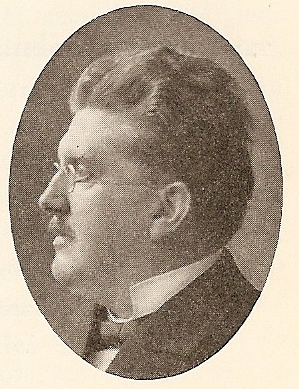Gösta Raquette
Gösta Raquette (1886–1966) was a Swedish missionary, linguist, and scholar known for his work among the Uighurs in Xinjiang, China, during the early 20th century. His contributions to the study of the Uighur language and culture, as well as his efforts in the field of Christian missionary work, have left a lasting impact on both academic and religious communities.
Early Life and Education[edit | edit source]
Gösta Raquette was born in 1886 in Sweden. From a young age, he showed a keen interest in languages and theology, which led him to pursue studies in these fields. He attended a prestigious university in Sweden where he studied theology, linguistics, and oriental studies, focusing particularly on Central Asian cultures and languages.
Missionary Work[edit | edit source]
In the early 20th century, Raquette joined the Swedish Missionary Society, which sent him to Xinjiang, a region in northwest China. His mission was to spread the Christian faith among the local Uighur population. During his time in Xinjiang, Raquette not only engaged in missionary activities but also immersed himself in the study of the Uighur language and culture. He established strong relationships with the local communities, which allowed him to gain a deep understanding of their way of life and beliefs.
Linguistic and Cultural Contributions[edit | edit source]
Raquette's most significant contributions were in the field of linguistics. He compiled a comprehensive dictionary of the Uighur language, which was a monumental work at the time and remains an important resource for scholars studying the language. Additionally, he translated several Christian texts into Uighur, making them accessible to the local population for the first time.
His scholarly work extended beyond linguistics. Raquette also conducted ethnographic research, documenting the customs, traditions, and social structures of the Uighur people. His publications on Uighur culture and society provided valuable insights for both missionaries and academics interested in Central Asia.
Legacy[edit | edit source]
Gösta Raquette's work had a profound impact on the fields of linguistics, ethnography, and missionary work. His dedication to understanding and preserving the Uighur language and culture has been recognized by scholars worldwide. Despite the challenges he faced, including political unrest in the region and the difficulties of cross-cultural communication, Raquette's contributions have endured.
After returning to Sweden, Raquette continued to write and lecture on his experiences and findings. He passed away in 1966, leaving behind a legacy of scholarship and intercultural understanding.
See Also[edit | edit source]
Search WikiMD
Ad.Tired of being Overweight? Try W8MD's physician weight loss program.
Semaglutide (Ozempic / Wegovy and Tirzepatide (Mounjaro / Zepbound) available.
Advertise on WikiMD
|
WikiMD's Wellness Encyclopedia |
| Let Food Be Thy Medicine Medicine Thy Food - Hippocrates |
Translate this page: - East Asian
中文,
日本,
한국어,
South Asian
हिन्दी,
தமிழ்,
తెలుగు,
Urdu,
ಕನ್ನಡ,
Southeast Asian
Indonesian,
Vietnamese,
Thai,
မြန်မာဘာသာ,
বাংলা
European
español,
Deutsch,
français,
Greek,
português do Brasil,
polski,
română,
русский,
Nederlands,
norsk,
svenska,
suomi,
Italian
Middle Eastern & African
عربى,
Turkish,
Persian,
Hebrew,
Afrikaans,
isiZulu,
Kiswahili,
Other
Bulgarian,
Hungarian,
Czech,
Swedish,
മലയാളം,
मराठी,
ਪੰਜਾਬੀ,
ગુજરાતી,
Portuguese,
Ukrainian
Medical Disclaimer: WikiMD is not a substitute for professional medical advice. The information on WikiMD is provided as an information resource only, may be incorrect, outdated or misleading, and is not to be used or relied on for any diagnostic or treatment purposes. Please consult your health care provider before making any healthcare decisions or for guidance about a specific medical condition. WikiMD expressly disclaims responsibility, and shall have no liability, for any damages, loss, injury, or liability whatsoever suffered as a result of your reliance on the information contained in this site. By visiting this site you agree to the foregoing terms and conditions, which may from time to time be changed or supplemented by WikiMD. If you do not agree to the foregoing terms and conditions, you should not enter or use this site. See full disclaimer.
Credits:Most images are courtesy of Wikimedia commons, and templates Wikipedia, licensed under CC BY SA or similar.
Contributors: Prab R. Tumpati, MD

